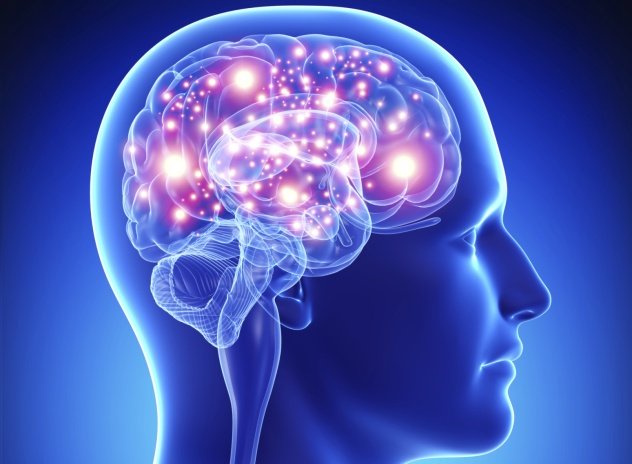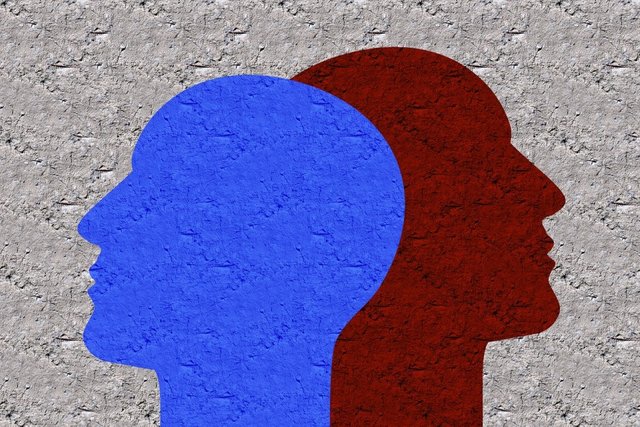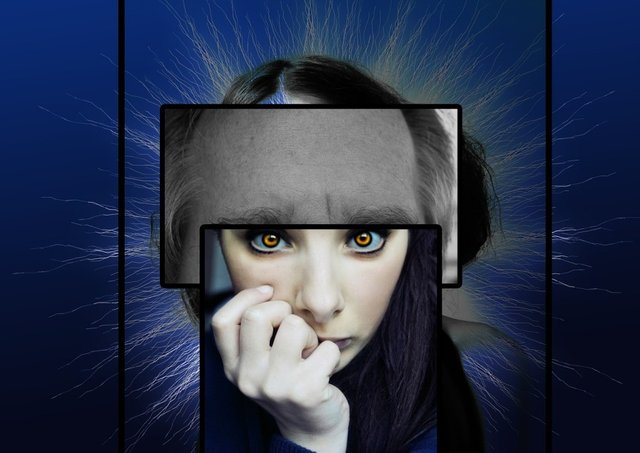HOW PSYCHIATRY LABELS EVERYONE AS A PATIENT (PART 2) – MOST CONTROVERSIAL MENTAL DISORDERS AND TWO SCHIZOPHRENIA CASE REPORTS
Last week in PART 1 of this article (as published by @knozaki2015) I wrote a quick introduction to Psychiatry’s latest diagnostic manual, the DSM-5, and I briefly explained how the American Psychiatric Association decides which disorders will be included in the manual and which will not. I then proceeded to talk about the first 5 of the Top-10 most ‘ridiculous’ psychiatric disorders as taken directly from the DSM-5 manual.

In this article (PART 2) I will talk about the last 5 most controversial psychiatric diseases and at the end I will briefly explain why I have such a problem with how Psychiatry diagnoses its patients today by shortly presenting to you two real psychiatric patients which I had the chance to meet during my Psychiatry rotation back in medical school. But first, here is the second part of my Top-10 most ridiculous and controversial psychiatric disorders:
Attention Deficit Hyperactivity Disorder (ADHD)

Try to picture a typical 8 year old boy. His main priority in life is to have fun, run around, jump up and down – even in places where it might be inappropriate to do so. He loves to play, sometimes very loudly, and it seems to be impossible to make him sit quietly, even for a bit. On social events he is very hard to control and he needs constant discipline by his parents. Playing with his friends is his favorite thing to do and that’s probably the only reason why he goes to school, reluctantly some times. His teachers keep saying that he is a smart kid, but he needs to try and focus more on his school work. They had to discipline him a few times because his homework was full of mistakes or sometimes he would forget doing it completely! His parents can definitely believe his teachers since at home he acts pretty much the same way. He hates cleaning his room, or doing any other chores that his parents make him do. Sometimes when they try to talk to him about his responsibilities, he appears like he is not really listening. His mind seems to be somewhere else and the next day he always forgets everything his parents tried to teach him.
I have just described to you a ‘typical’ child. But what if I had asked a psychologist to describe to us a ‘typical’ child with ADHD? According to the DSM-5, his description would look pretty much the same as the text above. Everything I included in that text is listed as a diagnostic criterion for ADHD. Of course, just like for most psychiatric illnesses, the symptoms must create significant problems in the patient’s life. But in this case, this decision is based on the subjective opinion of the parents who are usually asked to ‘rate’ on a scale of 1 to 5 how much, they think, each symptom is affecting their child’s life. It is believed that up to 10% of children today could potentially be diagnosed with ADHD and given a long-term prescription of Ritalin. If that doesn’t worry you enough, the American Psychiatric Association, in the revised DSM-5 criteria, has increased the maximum age for diagnosis from 6 to 12. The result – even more children can now be labelled as psychiatric patients.
Intermittent Explosive Disorder

If you have temper tantrums, anger outbursts or get involved in verbal arguments twice per week and your ‘aggressive impulses’ are ‘out of proportion’ then you could be suffering from this disorder. The generalization used to describe the symptoms of this ‘disease’ allows for the subjective interpretation of the Psychiatrists to be the main deciding factor which will distinguish the healthy from the sick. Even though your ‘twice per week’ anger issues will probably just put you in psychotherapy they could also potentially give you a prescription of mood stabilizers, antidepressants and anxiolytics. Side effects of such drugs include anxiety, emotional blunting, sexual dysfunction, nausea, vomiting, heart rhythm abnormalities, increased risk of dying from bleeding and suicidal thoughts.
Personality Disorders

Another great example of Psychiatry’s ‘one disorder for each individual’ way of thinking. Currently there 10 different personality disorders and I am sure most humans can fit under at least one of them. They define a Personality Disorder as ‘an enduring pattern of inner experience or behavior that deviates markedly from the expectations of the individual’s culture’. In other words, instead of encouraging humans to live in a world where free thinking and individuality are valued the most, they tell you that if the ways you think or behave are different than everyone else’s around you, then you could be mentally ill.
Personality Disorders are currently divided into three different ‘Clusters’. Cluster A includes the paranoid, schizoid and schizotypal types and according to the DSM-5 ‘patients’ in this group generally appear as ‘odd or eccentric’. If your way of thinking and behaving is ‘dramatic, emotional or erratic’ then you probably have a Cluster B personality disorder or more specifically one of antisocial, borderline, histrionic or narcissistic types. Finally, if you are generally an anxious or fearful person then you could be suffering from the avoidant, dependent, or obsessive-compulsive types of Personality Disorders, all part of Cluster C.
If your psychiatrist suspects that you might have a Personality Disorder but he is not really sure in which specific category you belong to, the DSM-5 has the answer. ‘General Personality Disorder’ is listed in the DSM-5 as a separate disorder and it is for those who either don’t fit in a specific Cluster or they show signs of multiple Personality Disorders.
Transvestic Disorder

There is something about the diagnosis of Paraphilias that really annoys me. Perhaps it is the hypocrisy of the DSM-5 which first labels someone’s - different than ‘normal’ - sexual desires as a mental disorder and then after they have told that person that he could possibly be mentally ill, they tell him: ‘oh, but don’t worry, you can only be diagnosed if you feel distressed about it’. I can understand the reason behind including Paedophilia in the DSM-5 but I think that putting next to it something called ‘Transvestic Disorder’ is a disgrace to say the least.
Imagine a young male, probably in his teenage years, questioning his sexuality – even questioning his own gender. He has sexual fantasies about being a woman, sometimes he likes to dress as one and even to have sex as one. The society stereotypes make him feel different, like he doesn’t belong with the rest of his peers. He probably gets bullied and according to statistics he is much more likely to be harassed, beaten and even raped than other ‘normal’ people. He decides to go to a psychiatrist to get some help, who despite the fact he may have good intentions, he has to diagnose him with a mental illness according to the ‘Holy Book’ of Psychiatry. Imagine now how difficult it will be for this person to ever feel normal and live his life as he chooses without emotions of guilt or distress.
Oppositional Defiant Disorder

For some people, this is Psychiatry’s biggest joke yet. The way the diagnostic criteria have been written, any disagreement with an individual or organization of authority is considered a mental illness. If you refuse to comply with the orders from an authority figure, if you don’t follow the rules, or even if you get ‘touchy’ or ‘annoyed’ at their requests or even the thought of having to follow a rule you don’t agree with, then you are a candidate for this diagnosis. As an adult, not following the rules at least once every week for 6 months is enough for a psychiatrist to diagnose you. I don’t think I need to comment any further. Check the diagnostic criteria yourself. But be a good sheep and don’t defy them, or else you will be declared mentally unstable.
Personal Experience: Two similar but also very different cases of Schizophrenia
I could really keep this list going by talking about OCD, Tobacco Use Disorder, Factitious Disorder, Conduct disorder etc. But I will stop here and try to tell you quickly why I have such a problem with Psychiatry. Other than the obvious reasons which you can probably tell from reading this and my previous article, my problem also originates from an experience I had with two patients I met during my rotation in a Psychiatric hospital. Both patients, a man and a woman in their late 20s, were diagnosed with schizophrenia.

I met the woman first. We hear very frequently the metaphorical expression about people being ‘empty in their soul’, but the first time I saw her, was the first time that I ever genuinely felt this about someone. The way she looked at me, her movement, the tone of her voice gave me an eerie, almost shocking feeling. But with the medication she was taking, her emotionless appearance wasn’t really a surprise. After battling for years with severe depression, she started hearing voices, which told her daily how worthless she was and that no one in the world could ever love her. This is when she started receiving anti-psychotic medication in addition to her antidepressants. The voices went away for a while and things seemed to improve. But it wasn’t long before her hallucinations returned - only this time they were as evil as they could get. A new voice started to speak within her head. It was telling her how death, which the patient referred to as ‘the darkness’ was so much better than the life she was living. It told her how all her problems would be solved and how all the horrible feelings would go away once she went ‘to the darkness’. Soon after its appearance, the voice told her to grab a blade and slit her wrists. The woman was found by her mother in a bathtub full with blood and it was by pure luck that she was saved. She showed me her scars and it was obvious that this wasn’t just a cry for attention. It was a genuine attempt to put an end to her life. She was hospitalized and given more aggressive medication. Her condition improved but from what I learned, soon after the voices still returned.
Then a few weeks later I met the male patient. He was a rather likable person, a bit awkward but definitely fun to talk to. Unlike the female patient, he never had problems with depression. He was given the diagnosis of Schizophrenia after he had various religious visions and ‘encounters with God’. He believed that the sun was the physical form of God and that the Sun would talk to him frequently telling him to live his life according to the words of God. This young man had no problems with his visions and the only reason he was in the hospital was because his parents made him come since they were worried about him. He was never aggressive or depressed, he never tried to harm himself or others, he had a couple of friends and he had just started working at a part-time job. Despite the fact that his hallucinations were generally harmless, he did mention feeling some minor anxiety and fear while experiencing them. That was enough for the Psychiatrist to admit him to the hospital to make sure he was no danger to ‘himself or others’. About two weeks later he was released with a prescription of powerful anti-psychotics.
Two months later it was time for him to visit his psychiatrist again. I got permission to observe his session and I can say that I was rather excited to see him again since our first meeting was quite interesting and enjoyable. As soon as he opened the door, my eyes turned straight to him and to my shock, I saw in him the exact same ‘emptiness’, emotionless expression that I had seen the first time I met the female patient. The person he was before, was now well gone - one could say even 'dead'. I cannot say that this patient was ‘normal’ when I first met him, but he had an ‘abnormality’ which didn’t really bother him and did not decrease in any way the quality of his life. He was just different. But now the pill cocktail which was given to ‘heal’ him had turned him into a different person, who appeared almost like a ghost of his previous self. I don’t know how this patient turned out, but I can guarantee you that he is not the only one who has been through this.
I understand that the human brain and the way it works are some of the biggest mysteries that Medicine has to deal with today. I am not trying to doubt the fact that Mental Disease can be real and debilitating. I am just arguing against Psychiatry’s attempt to medicalize ordinary parts of human life and label the different as ‘diseased’. It widely offers therapy and most often pills as an ‘easy way out’ from difficult but still normal elements of life. Perhaps one day, when biological evidence for some mental illnesses will be discovered, Psychiatrists will turn to us and rightfully say ‘We told you so’. But until then, everyone involved in the field of Psychiatry should understand its limitations and change the way they diagnose and treat the mentally ill.
-CT.
===========================================================
Sources
Diagnostic and Statistical Manual of Mental Disorders http://www.institute4learning.com/articles/add_myth.php http://www.emergenceplus.org.uk/what-is-personality-disorder/92-why-are-personality-disorders-controversial-diagnoses.html http://www.wayneramsay.com/diagnosis.htm
===========================================================
For more articles like this but also on many other subjects, follow me @nulliusinverba

Great post - you are expressing many of the problems I saw when I was a medical student. I still feel the same in many ways.
There is a real problem with overpathologising in psychiatry but I don't think this problem comes from psychiatry itself. It is more complex than that.
It is a problem of modern culture where everything must be looked at through the disease model. People want easy solutions for social "problems" and psychiatry is often required to provide those solutions.
The pressure comes not just form society as a whole but often from the patients themselves who "demand" a fix from their GP (and ultimately their psychiatrist) as well as their families who can be just as aggressive in their demands.
You definitely make some very valid points but I think if you work at all in psychiatry you will start to understand where all of this is coming from.
Most psychiatrists understand this but don't really have the power or indeed the time to do anything about his. Psychiatry is underfunded and under-resourced as it is. It is depressing to work in and staff are difficult to retain.
That said I think the DSM in particular tends to be influenced a bit too much by drug companies who have an interest in keeping this going. The ICD 10 though not perfect is more sensible.
There is already substantial evidence from the last couple of decades. Just do a medline search and you will see. The problem is it is still very much in it's infancy and has not provided the detailed answers we normally expect in medical practice.
For example the reduced cell turnover in the hippocampi of depressed individuals and reduced levels of nerve derived growth factor have all been illustrated.
Thanks for sharing your thoughts.
You are absolutely right that the patient himself may sometimes act as a direct or indirect pressure to the psychiatrist in order to give him a prescription. Perhaps quite a similar problem is the administration of antibiotics in patients who don't really need them. But when patients go to a doctor and pay a substantial amount of money, most of them demand something more than just 'go home and you ll be just fine'.
Regarding the 'biological evidence' I was referring mostly to clear anatomical or physiological abnormalities which can be directly connected to the mental illness. There are some already, such as the examples you gave and even some possible 'biomarkers' for schizophrenia - but none yet can meet the acceptable standard we use in diagnosing other diseases.
Many people like to dis psychiatry all together but the majority of them have never really met a mentally ill patient. So in a way the purpose of this article was to show that the truth lies somewhere in the middle: that yes psychiatric disorders are real but definitely not as widespread as many doctors claim they are.
Yes exactly.
I think part of the issue is the many undiagnosed patients that end up in psychiatry as the last resort. Many of the people who see the most admissions end up being labelled as psychiatric problems. Modern medicine doesn't really have a solution for this.
When I was a general surgical trainee I would see a lot of such patients as repeat admissions with recurrent severe abdominal pain. In some cases the patients may well have been doing it as a form of attention seeking due to underlying psychiatric or personality disorders but not in every case.
In a significant number of cases the patients appeared to have a real physical problem from a symptomatic standpoint but we just could not determine a specific pathology. I did not doubt that they were being honest though and that something physical was going on. Sometimes the psychiatric referral is a function of the surgeon or physician's own frustration too.
You are absolutely right about the lack of real solutions. CBT and other psychotherapies are very expensive compared to even very new psychiatric drugs. It also takes a long time to train new people who can provide them and due to the way they are administered a single practitioner can only administer treatment to a small number of people.
It is much easier, quicker and cheaper to just dole out the latest drug. It should also be noted that they (psychotherapies) require more effort on the part of the patient too and some patients actually point blank refuse them too even if they are lucky enough to get a place.
Unfortunately that does not change any of the potential contributory behaviours, thoughts or actions of the patients and they are likely to come back at some point with a relapse.
We really need a change in attitude to more far sighted and long lasting therapies as well as greater investment. Psychiatric problems have been ignored and neglected for too long.
very well said @thecryptofiend!